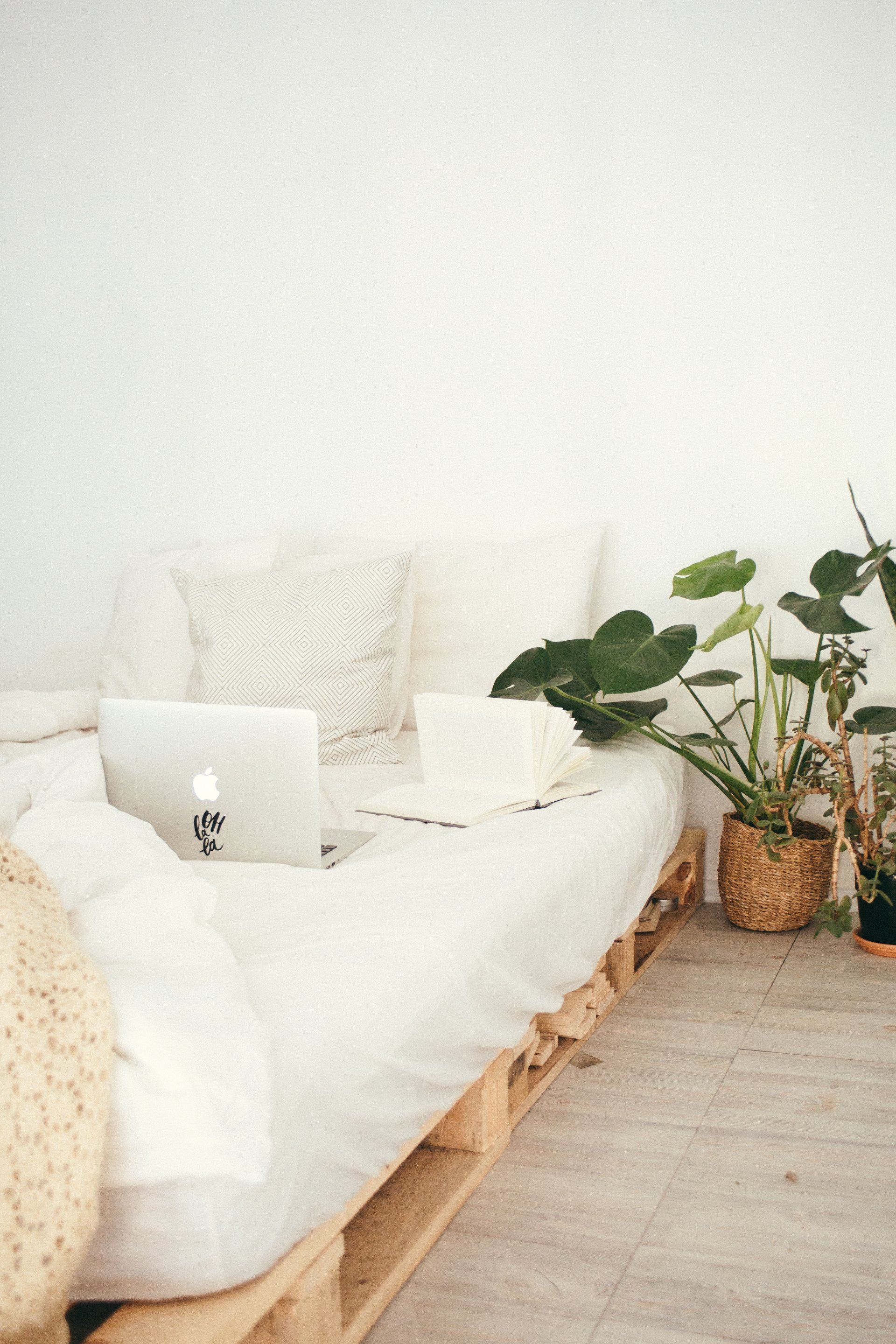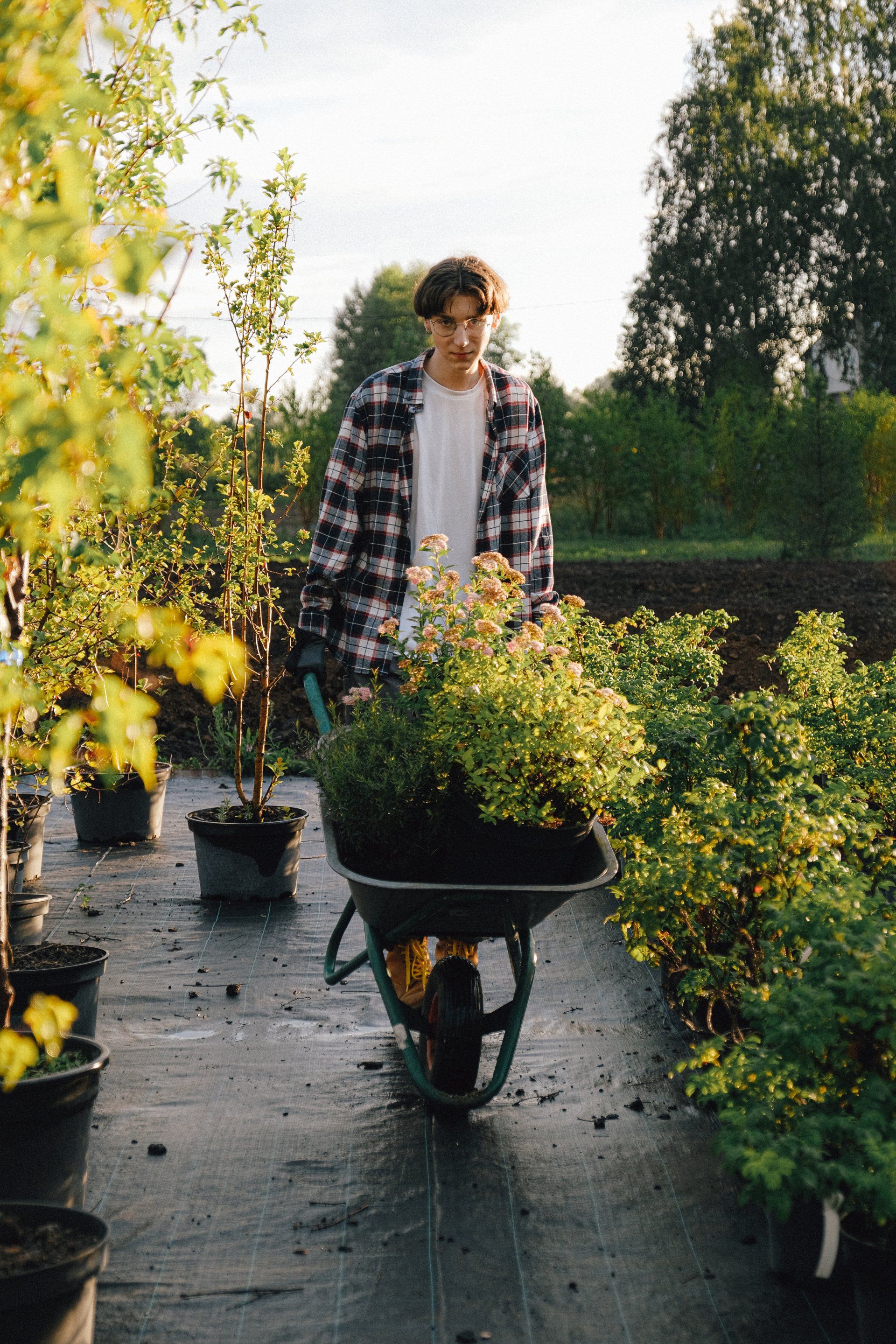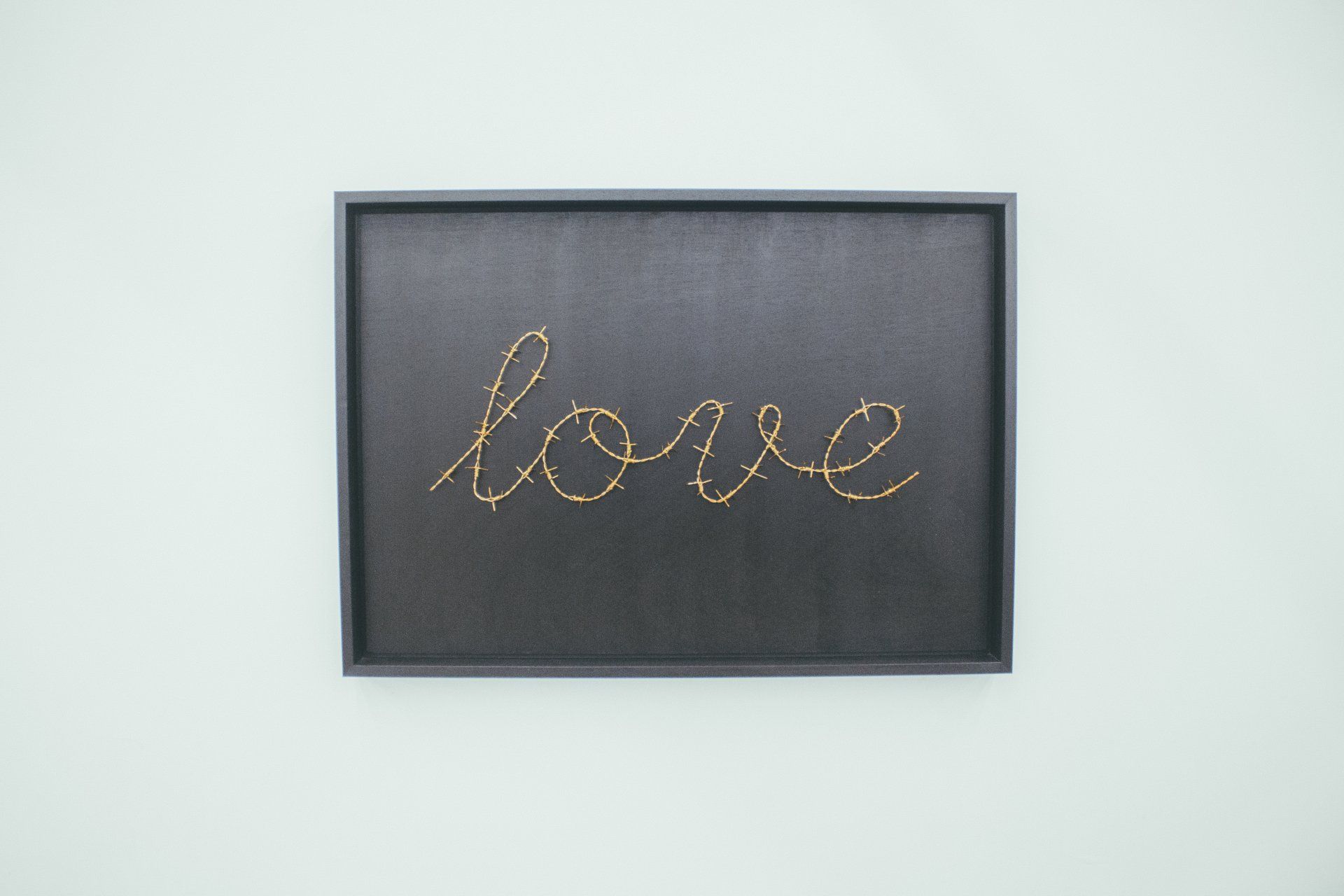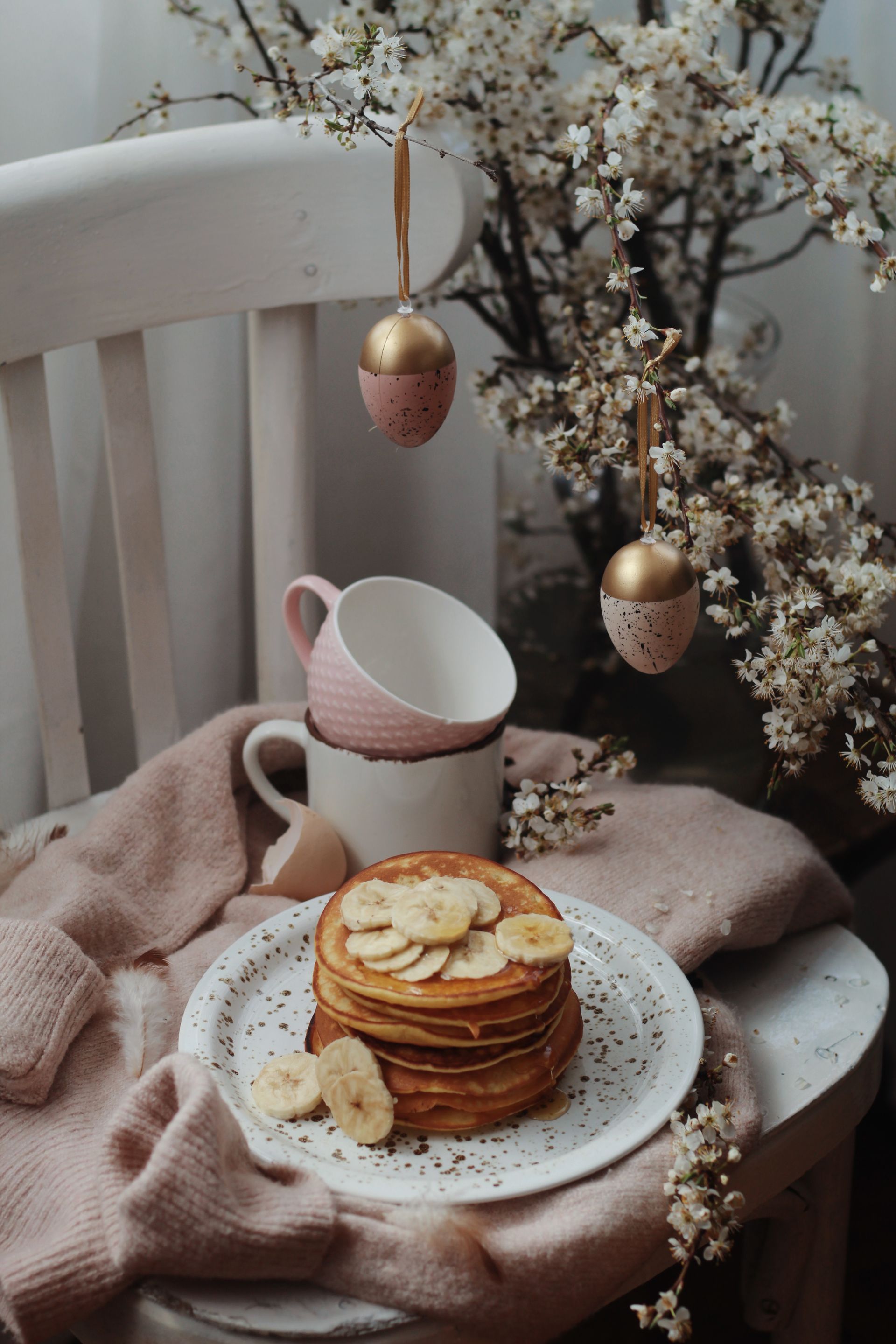Blog
Blog about Happiness and Hygge

By Velani Witthoft
•
12 Oct, 2021
Happiness begins at home. Research shows that our environment affects stress levels, which in turn affects our physical health. We spend so much time in our homes, even more so during the pandemic. Clutter, clutters the mind.Think about the way you feel in a hotel room. Most likely it feels like you can breath better, you can focus better and you feel a sense of peace. Hotel rooms are minimalistic. The Scandinavians perfected a balanced home. It is clean, clutter-free, yet cozy. Nordic design exercise a huge amount of restraint. Walls are usually white, light grey, sage or beige. Nothing too bright. Neutral colors create a sense of calm. Decor and furniture are carefully thought out, usually for practicality, earthy feel as well as aesthetic appeal. Single items are placed throughout the room to create a sense of space. I always think back to our NYC apartment and how it felt to walk into that space. Very much like a hotel room feel. We didn't own much outside of the necessities.I never had to de-clutter our home, like I have to do often nowadays. De-cluttering can be overwhelming. Maybe you are trying to keep that dress you will never fit into again? Maybe you are hanging onto too many sentimental objects? Maybe you feel guilty about getting rid of something you barely used. Clutter can create distraction, anxiety, guilt, embarrassment and frustration and all of those have a negative effect on our well-being. When should you consider de-cluttering? 1. You don't find joy in an item. 2. You feel stressed at the thought of friends or cleaners coming over, because you have to clear so much to make your space presentable. 3. You wish you had more space to store clutter. 4. You have a lot of items in your home that you do not use. 5. It takes you more than 5 mins to locate an item you are looking for. De-cluttering is an exercise of willpower and self-control. You can make it a therapeutic process. You will experience financial, emotional and physical benefits and it paves the way to a blissfully calm, clean and neat home.

By Velani Witthoft
•
05 Oct, 2021
Is there a formula for a good life? Researchers tried to answer this question in The Harvard Study of Adult Development, which started in the 1930s and followed 724 men for more than 80 years. The researchers studied unconscious responses to pain, conflict and uncertainty. Very interesting findings and conclusions were made about physical and mental health. “When we gathered together everything we knew about them about at age 50, it wasn’t their middle-age cholesterol levels that predicted how they were going to grow old,” said Waldinger in a popular TED Talk. “It was how satisfied they were in their relationships. The people who were the most satisfied in their relationships at age 50 were the healthiest at age 80.The researchers also found that marital satisfaction has a protective effect on people’s mental health. Part of a study found that people who had happy marriages in their 80s reported that their moods didn’t suffer even on the days when they had more physical pain. Those who had unhappy marriages felt both more emotional and physical pain. Loneliness kills and good relationships to other people matters most in life. Relationships are complex We have relationships with our neighbors, family, friends, co-workers, acquaintances, spouses and children. They all matter. Relationships can be the cause of a great deal of anxiety, but also of abundant amounts of joy, satisfaction, and happiness. Humans have three dimensions of self-understanding: Who we feel we are Who we want to be How other people see us The good relationships that have positive impacts on our lives are those where people see us for who we really are, but also where people help us to become who we really want to be. People feel seen when their opinion matters. People want to change when they are exposed to better circumstances. https://www.youtube.com/watch?v=8KkKuTCFvzI&t=107s

By Velani Witthoft
•
31 Aug, 2021
Summer is such a busy time. We try to fit so much into the long summer days. We spent time with so many of our friends, family, neighbors and acquaintances. True hygge is hard to achieve most days of summer. I often think of summer as my youthful days of the year. The days where I am using so much of my energy. Our family's summer trip, in all the busyness of summer, sustains me. Time slows down for a week or two. We usually spend it in Europe. We try not to plan much. We reserve our Airbnb and just show up. We wake-up, roam the streets in search of a good bakery, and over breakfast decide what would be on the agenda for the day. Some days nothing will be on the agenda. We will just roam around the city and discover great shops, restaurants and people. I live for those days. The past two summers looked so different for our family's summer vacation, like everyone else's, because of COVID-19. Thankfully we were fortunate enough to have our family vacation on Hilton Head Island this year. It is such a beautiful island. We witnessed the most amazing sunrises, sunsets and marine life. I am so thankful for those moments of beauty and of peace we experienced. As we are approaching Labor Day weekend in the States, we are also approaching shorter days and longer nights of darkness. Hygge is much easier to achieve in fall and winter. I hope that you have collected enough beautiful memories during this summer to sustain you in the coming months. Cheers to summer!

By Velani Witthoft
•
09 Mar, 2021
What exactly is synthetic happiness? It is a system of cognitive processes that help us change our views of the world so we can feel better about the world we find ourselves in. It is what we make when don't get what we want. Synthetic happiness acts like our psychological immune system. It keeps us happy. It works best when we are totally stuck, when we are trapped. The best part is that synthetic happiness is just as real as natural happiness. Natural happiness is what we get when get what we want. As humans we have the ability to manufacture our own happiness. In 2 million years our brain grew almost 3 times bigger in size. The majority of the growth came from the prefrontal cortex. It is our experience simulator. Often times our simulator works against us. We imagine our hardships, losses and disappointments dramatically exaggerated and the impact it will in reality have on our lives. For instance the differences between losing a romantic partner, not getting a promotion, passing a test, winning an election all have far less impact, less intensity and much less duration in reality. We overestimate our pains and our pleasures. Choices can negatively impact our happiness. Choices make us think about opportunity loss. When we don't have choices we come to like what we've got. Less choices, more happiness ... Dan Gilbert, Harvard Psychologist has done valuable research on synthetic happiness. Listen to his TED TALK here https://www.ted.com/talks/dan_gilbert_the_surprising_science_of_happiness?language=en

By Velani Witthoft
•
19 Feb, 2021
I have been fascinated how people handled the pandemic. Some people are fearful, some people are depressed, some people are very cautious and some people continued to live their lives as normal as possible. The Happiness Research Institute conducted a study in 97 countries to study the impact COVID-19 has had on happiness. Some of the findings are expected and some are surprising. The report also offers a 6-point plan on how to make sure you take care of your happiness during the pandemic. Some of their findings: Increased COVID-19 cases are strongly linked to happiness and feelings of anxiety. Feelings and emotions are mostly impacted by the rise in cases, but people also paused and decided to spend more time with family and close friends. Younger people, people without a job or a partner (single or widowed) suffer most from loneliness. Loneliness results in feeling more negative emotions, feeling lower levels of purpose, and a decline in life satisfaction. Cohabitation does not necessarily protect against loneliness. Young people living with roommates reported feeling lonelier even than single people living by themselves. However, respondents living with their partners are less lonely than those living apart. Meditation, speaking with friends and family, and spending time outside significantly reduce loneliness and anxiety. Fears and worries associated with COVID-19 were particularly prevalent in the early phase of the pandemic, and then followed a U-shape over time. Those who worry about losing someone to COVID-19 has significantly reduced happiness levels. The more respondents informed themselves about the pandemic, the more concerned they are likely to be. Those who rely on reading online news are more fearful and worried than those who receive their information via print media. Certain behavioral changes seem to buffer against the negative effects of COVID-19, such as creative projects and reaching out to friends and family. What can you do to be happier during the pandemic? Here is a 6-point plan according to the research. Spend more time outside. Engage in arts and crafts or DYI projects. Meditate and practice mindfulness. Be helpful to friends or family members. Keep in touch with those close to you. We are so fortunate to be living in the age of video-calls, use that. Remember to stay fit. Exercise is important for physical and mental wellbeing. If you want to be happy ... be! - Leo Tolstoy





